
Accounting software is a computer program designed to assist bookkeepers and accountants in recording and reporting financial transactions of an organization. Accounting software manages and records the day-to-day financial transactions of an organization, including fixed asset management, expense management, revenue management, accounts receivable, accounts payable, subledger accounting, and reporting and analytics.
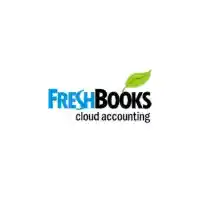
FreshBooks is a cloud-based accounting software which allows users to create invoices, track time, manage expenses, and accept online payments. It is built for freelancers, solo entrepreneurs, and small to medium-sized businesses, offering a full set of tools to handle accounting, invoicing, expenses, and payments.
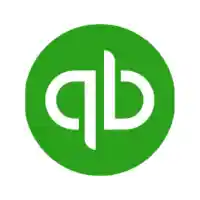
QuickBooks is a cloud-based accounting software package that helps small and medium-sized businesses manage their finances. QuickBooks is a top accounting software for Indian businesses, offering precise financial management and tax analysis, including challans and other financial documents.It tracks income and expenses, integrates with apps, and provides cloud-based access from multiple devices.
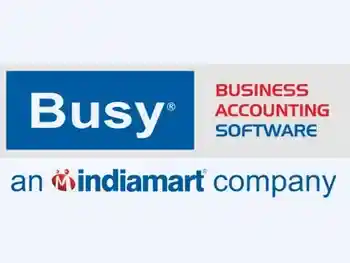
BUSY Accounting Software is a GST-compliant solution for small and medium-sized enterprises that simplifies financial operations, including accounting, inventory management, and tax filing. It automates complex tasks like GST return filing, payroll management, and invoicing. BUSY supports various industries, offering features like multi-tax invoicing and real-time financial tracking. With customizable templates and advanced compliance management, it helps businesses streamline operations efficiently
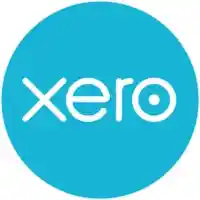
Xero is an online accounting software designed for small businesses, offering tools to manage cash flow, expenses, and transactions from anywhere. It allows users to share invoices with clients, track spending, and manage expense claims. Xero quickly reconciles transactions, providing real-time updates. With its online bill pay feature, businesses can monitor spending and due bills, while also using the platform to manage personal finances.

Wave accounting software is a free accounting app that's popular with entrepreneurs. that provides features including invoicing, billing, payment tracking, payroll management, finance management, credit card processing, and receipt scanning. Wave Accounting is designed to help businesses streamline bookkeeping processes
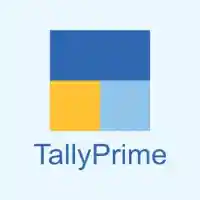
TallyPrime is a comprehensive accounting software tailored for small and medium-sized businesses to simplify financial management. It efficiently handles key functions like invoicing and inventory management while ensuring data control. Beyond accounting, TallyPrime offers comprehensive solutions for cash flow management, GST filing, and taxation. It also includes features such as online banking, secure data management, and payroll management, making it a versatile tool for business management.

Zoho Books is a cloud-based accounting software that helps businesses manage financial tasks like invoicing, expense tracking, and GST compliance. It offers a user-friendly interface, customizable templates for transactions, and a secure platform to store bills and invoices. Zoho Books integrates with over 300 apps via Zapier and other built-in Zoho apps to expand your business network. It also features an advanced customer portal, transaction approval workflows, and vendor management tools, making it a versatile tool for seamless accounting and business operations.
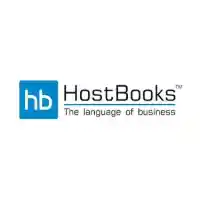
HostBooks is a cloud-based accounting software that automates financial tasks like accounting, billing, and compliance with tax regulations. It facilitates expense tracking, report generation, and real-time collaboration, while reducing IT costs and ensuring data security. Key features include an intuitive dashboard, automated reports, and support for multiple entities, making it a flexible solution for businesses.

Our software solutions are tailored to meet your unique business needs, combining innovative technology with user-friendly design. We prioritize scalability and efficiency, ensuring that our solutions grow alongside your business. With a focus on quality and performance, we deliver reliable software that drives productivity and enhances your operations. Trust us to empower your business with the best solutions in the industry.
Happy Customers
Project’s Completed
Skilled Team Members
| Accounting Software Cost | ||
|---|---|---|
| Top Accounting Software | Starting Price | Rating |
|
QuickBooks |
$35.00 /Month | 4.3 |
|
Busy Accounting Software |
₹5999.00 /Year | 4.2 |
|
TallyPrime |
₹750.00 /Month | 4.4 |
|
Freshbooks |
$8/ Month | 3.9 |
FAQs
The best accounting software for small businesses often includes options like QuickBooks, FreshBooks, and Xero. These platforms offer user-friendly interfaces, essential features like invoicing and expense tracking, and scalability to accommodate growth.
Pricing for accounting software varies widely based on features and subscription models, typically ranging from $10 to $100 per month. Many platforms also offer tiered pricing, allowing businesses to choose a plan that fits their needs and budget.
FreshBooks is often cited as one of the easiest accounting software options for beginners due to its intuitive interface and simple navigation. It focuses on invoicing and expense tracking, making it ideal for freelancers and small business owners.
When choosing accounting software, consider factors such as ease of use, feature set (invoicing, reporting, tax compliance), scalability, customer support, and integration capabilities with other tools your business uses.
Large companies often use enterprise-level solutions like SAP, Oracle NetSuite, and Microsoft Dynamics 365. These platforms provide comprehensive features for managing complex financial operations, compliance, and reporting at scale.
Many cloud-based accounting software options operate on a subscription model, which typically includes updates and maintenance without additional fees. However, some on-premise solutions may charge annual maintenance fees for support and updates.
Accounting software is used for managing financial transactions, including tracking income and expenses, generating invoices, preparing financial statements, and ensuring tax compliance. It streamlines bookkeeping processes and enhances financial reporting.
Common functionalities include invoicing, expense tracking, bank reconciliation, financial reporting, tax calculation, and inventory management. Many platforms also offer integrations with payment gateways and other business tools.
For cloud-based accounting solutions, no new IT infrastructure is typically required, as these applications are accessible via the internet. However, on-premise solutions may necessitate hardware and networking investments.
Larger enterprises often prefer solutions like SAP, Oracle NetSuite, and Infor CloudSuite. These systems offer advanced functionalities for managing complex financial processes and can be customized to meet the unique needs of large organizations.
20,000+ Software listed
Best Price Guaranteed
Free Expert Consultation
2M+ Happy Customers